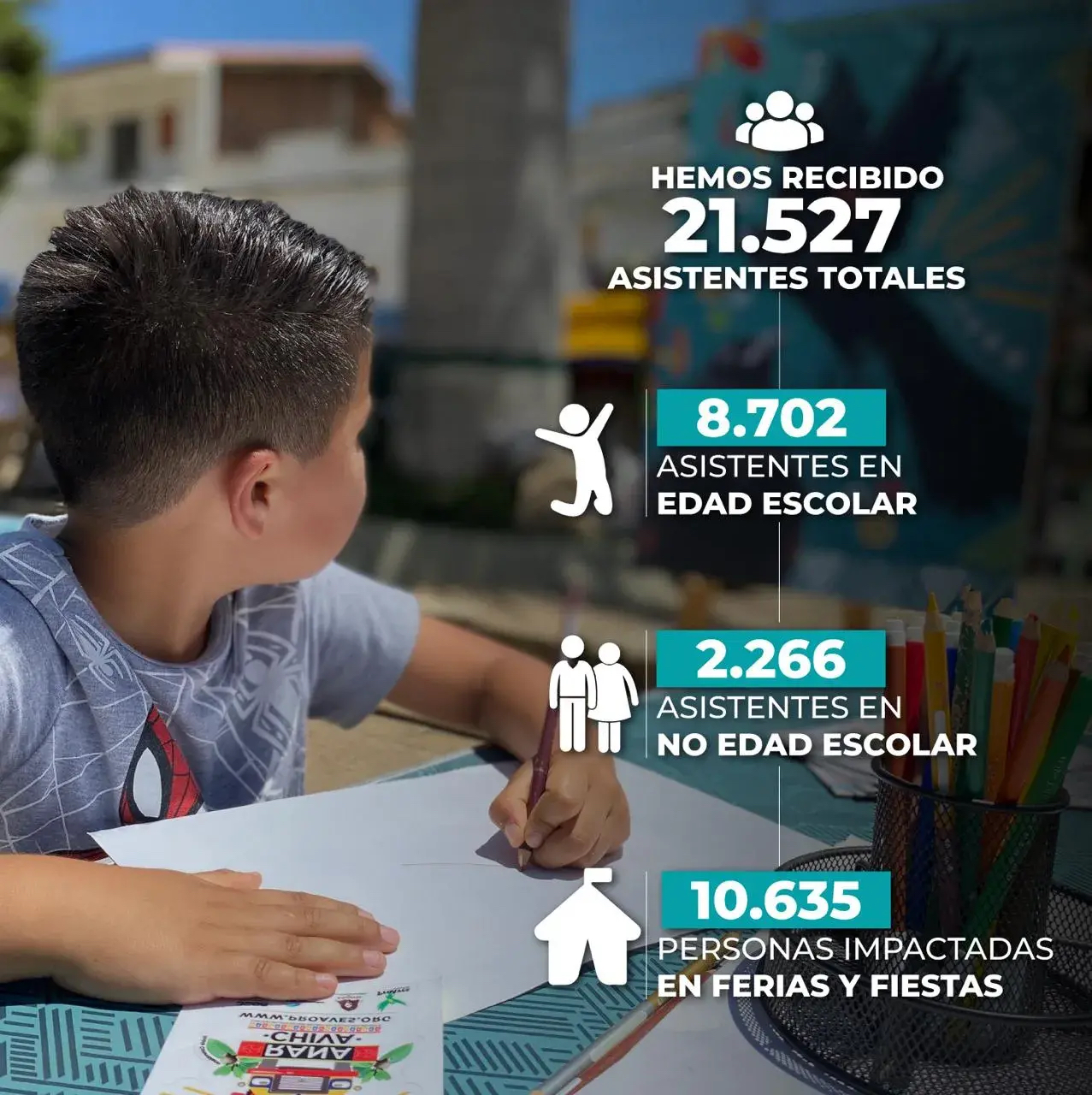
Environmental education stands as a cornerstone for Women for Conservation and our Colombian partner ProAves. With this commitment in mind, the mobile classroom known as Rana Chiva made its mark at the 12th World Congress on Environmental Education (WEEC) held from January 29 to February 2 in Abu Dhabi, United Arab Emirates.
The congress serves as a global platform to discuss, share knowledge, and showcase innovations in environmental and sustainable development education. The Rana Chiva, which has reached over 21,000 people nationwide, has emerged as an innovative strategy on the international stage.
The “chiva” bus is a traditional mode of transport in Colombian culture, renowned for reaching rural and remote territories across the country. These communities, located many hours away from urban centers, are the primary beneficiaries of the RanaChiva’s educational efforts. The mobile classroom aims to spread education about the importance of saving endangered species such as the Chango, the Lynch’s Colombian Frog, and the Colombian Oak, which are endemic to Colombia.

 In addition to these rural settings, the RanaChiva has also engaged in activities at events, fairs, and festivals in towns like San Vicente de Chucurí, Carmen de Chucurí, Sabana de Torres, Betulia, Matanza, Suratá, California, Tona, Charta, and Vetas.
In addition to these rural settings, the RanaChiva has also engaged in activities at events, fairs, and festivals in towns like San Vicente de Chucurí, Carmen de Chucurí, Sabana de Torres, Betulia, Matanza, Suratá, California, Tona, Charta, and Vetas.

To date, this environmental mobile classroom has traveled 5,900 kilometers across Colombia, continuing to reach different municipalities with the goal of instilling a sense of local pride and protection for biodiversity in the country’s future conservationists.
“Thanks to the support of MBZ, ProAves has managed to reach the hearts of rural communities, gaining allies for the conservation of our incredible ecosystems and species.”
– Sara Inés Lara, Executive Director of ProAves

The journey of the RanaChiva exemplifies the power of education and outreach in conservation, showcasing how a traditional Colombian cultural icon is being used to drive environmental awareness and action on a global scale. Thank you to the World Congress on Environmental Education (WEEC) for promoting our work.


